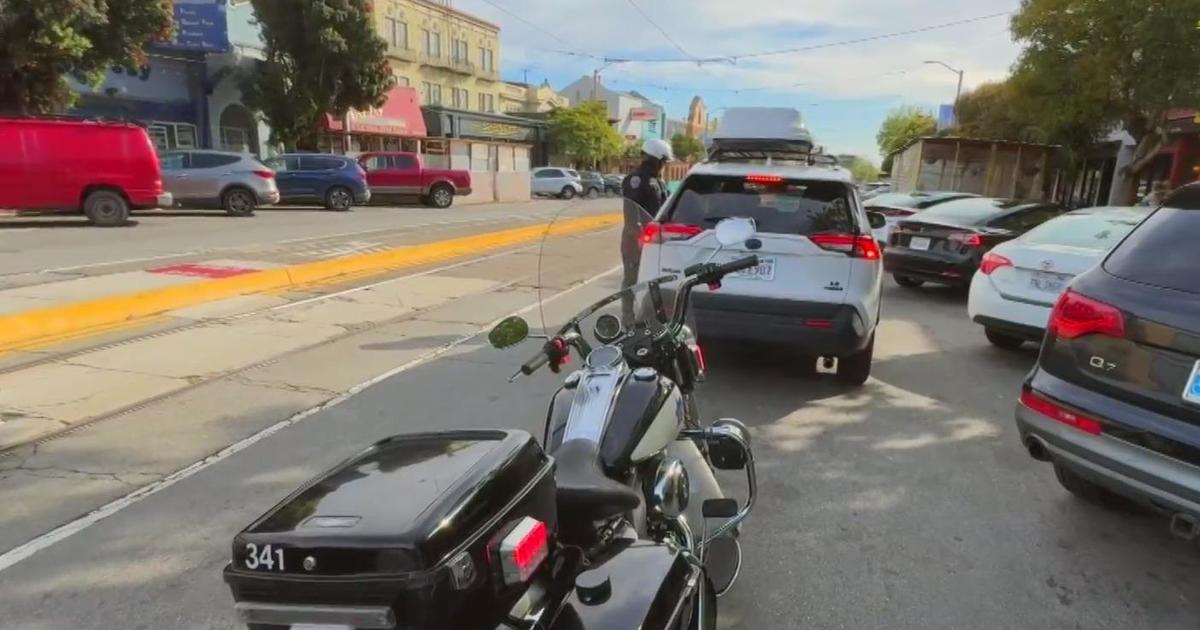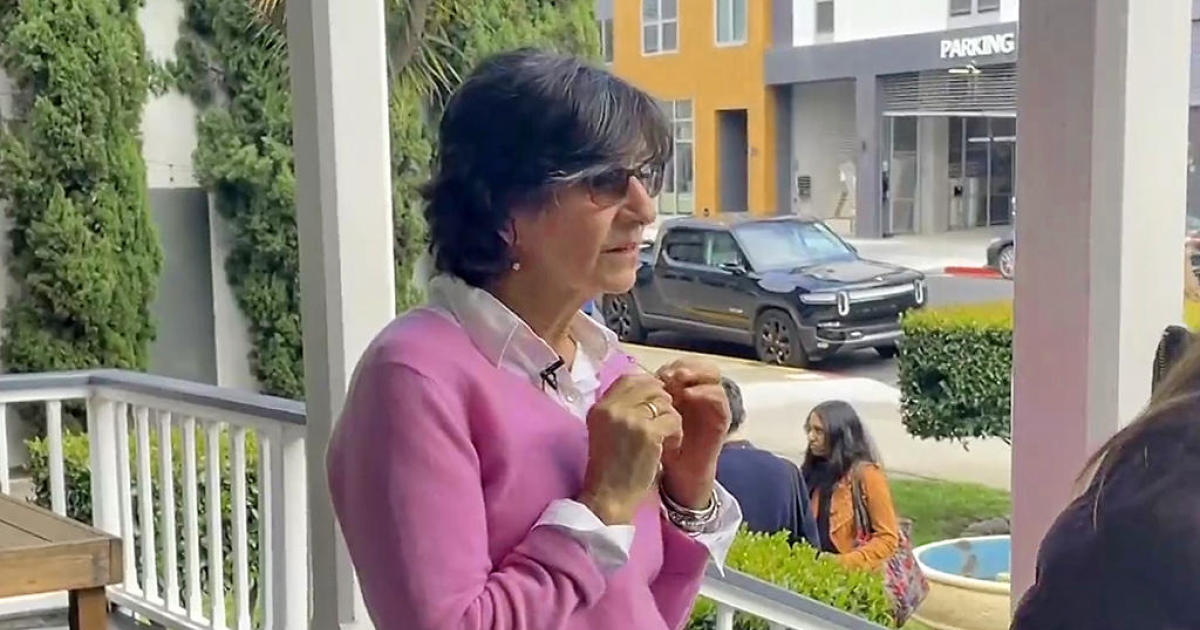Finding Career, Personal Success After Graduating From Cal
SAN FRANCISCO (KPIX 5) - Yaqiao Li proudly wears the white coat of a research associate as she gazes into a microscope at the Gladstone Institute, affiliated with UCSF. She's studying how the molecules in the brain work, specifically, what causes degenerative diseases like Alzheimer's.
She works with a cutting edge research team that hopes to someday find a cure for Alzheimer's. It is meaningful work and the learning curve is steep.
"I'm fascinated by how the brain works. I love to learn about it," says Yaqiao. "I am so privileged to work with many brilliant scientists here."
The high-tech aspect of her work is the coolest part, she says.
It's quite an entry-level job for recent college grad. Yaqiao majored in Molecular Cell Biology at U.C. Berkeley, with an emphasis in Neurobiology. She is a very different young woman than the lonely, overworked teenager we first profiled, when she was a senior at Lincoln High School in San Francisco, studying during her lunch break.
She was completely on her own, working at a Tapioca Parlor to support herself after her mother died of cancer.
"If I don't work I won't have money to pay for my rent and I won't have (anywhere) to live and I won't have food to eat," she said.
Her mother brought her to this country for a better life, but on her own, Yaqiao was barely surviving. She scrambled month-to-month getting food stamps, and worrying about a place to live. At one point, she was basically homeless, staying with friends. With her salary and some help from Students Rising Above, she got a small apartment.
"I am really lonely all the time when I go home at night. I'm just sitting in a room that's really quiet and by myself," she said at the time.
There were 20 students in the Students Rising Above (SRA) class of 2008, the first year of the great recession. Out of those twenty, seven became homeless in their senior year of high school. Some of those kids were living in relative's homes where they were unwanted or in danger. The non-profit Covenant House estimates there are 10,000 homeless youths living in the Bay Area.
SRA advisors see homelessness regularly as a parent falls on hard times or when foster kids age out of the system at 18.
"We get a phone call saying 'I have no place to go.' There's a deep feeling of rejection, despair, and especially when you are senior in high school- a feeling of hopelessness," says Barb Hendricks, the Director of SRA Student Programs.
For a teenager with no parents, there is a special kind of fear.
"They don't know where their next meal will come from, what the shelter will be, and on top of all that, how they will continue to get their homework done and submit it," Ata Hendricks.
It can be an invisible problem for the public because homeless kids are not necessarily living on the street under cardboard. Many of the students rising "couch surf", moving from place to place and developing an exquisite sense of timing as to when to move in order to preserve charitable relationships. Sometimes, teenagers live in shelters or cars for a time, either with or without a parent. Every year, SRA gets a handful of kids who lose housing.
For Yaqiao, the support she received helped her overcome what can be a crippling obstacle. Five years after high school homelessness, she is a confident young scientist who is no longer alone.
"Even though I lost my blood family because of cancer, I think American society gives me a whole other kind of family," she says. That includes her Students Rising Above mentors, Marilyn and Jerry Jacobson, who stay in close contact with her. They helped her move into Cal and they celebrate holidays with her.
"Their help meant so much to be because I'm really living in this world by myself," Yaqiao says.
At Cal, she forged a deep relationship with a professor she met while interviewing for a scholarship.
"I told her that I would recommend her, but only if she agreed to read with me so we could start to help her overcome a really important problem for someone who wants to become a college student," Professor Dana Buntrock explained.
That problem was reading. Buntrock knew Yaqiao would need college-level reading skills to get through Cal and she also knew the university was legally prevented from providing remedial classes for students like her. And so, Professor Buntrock would meet with Yaqiao every week for hours, helping her develop her reading skills.
"She spent all this time helping me, and I couldn't believe someone would do that for a total stranger," Yaqiao says.
Buntrock insists it was mutual.
"She never had to learn a word twice. If you taught her a word, she knew it for life. And so we would sit and go over things and after an hour or so, sometimes we'd keep reading. Sometimes we'd talk about something," Buntrock said. "She wants to be a good person. She wants to give back. She never once acted like she was going to give up. She took incredibly hard classes and towards the end, she was reading me stuff I didn't understand."
So by the time Yaqiao graduated she not only had a degree but a new family.
"Family doesn't have to be blood related," she says. "People can be nice to you and kind to you and truly care about you, even though they are not related to you and they just want to."
"She has a happy heart. She wants to be a happy person. And to do that you have to learn to trust people and we were the ones she let in," Professor Buntrock said.
So Yaqiao Li graduated college with a new American-style family, as well as a degree and a job.
"That makes me want to become successful and pay back to the society and be this nice to somebody else in the future, She said.
She may go for a graduate degree and continue her Alzheimer's research or she may go to med school.



